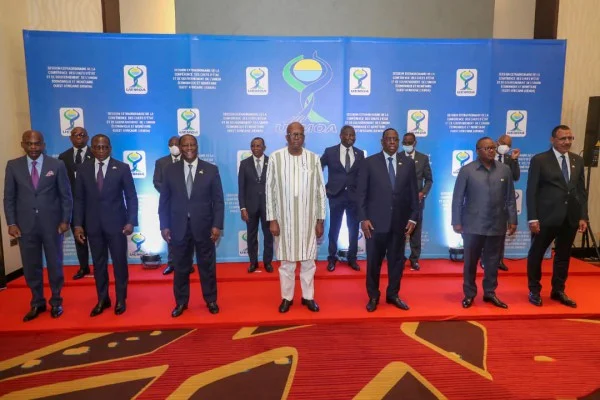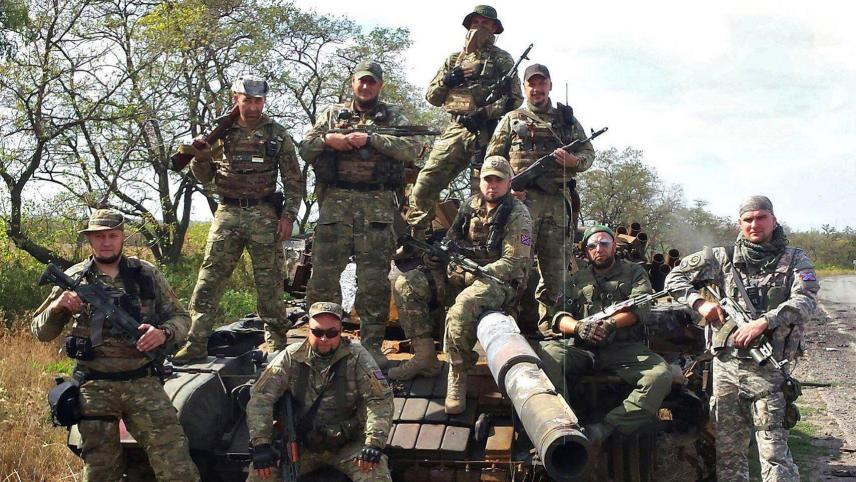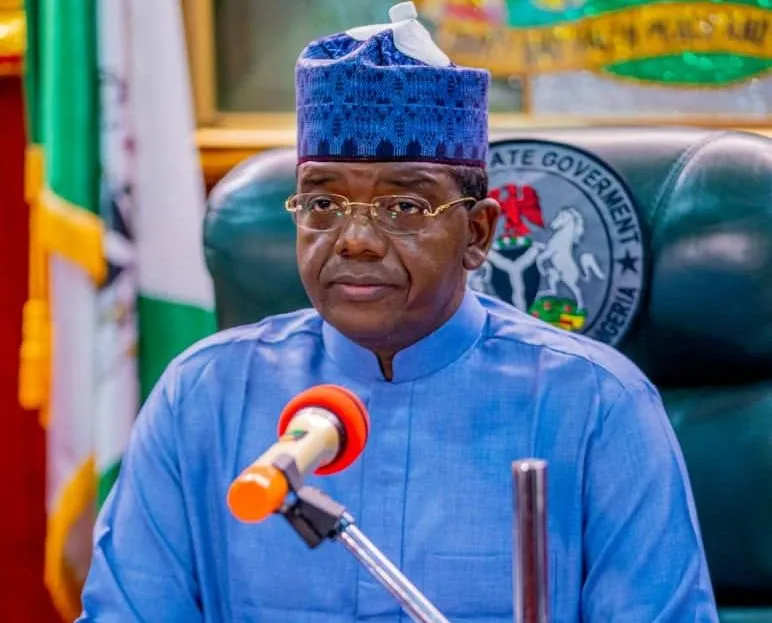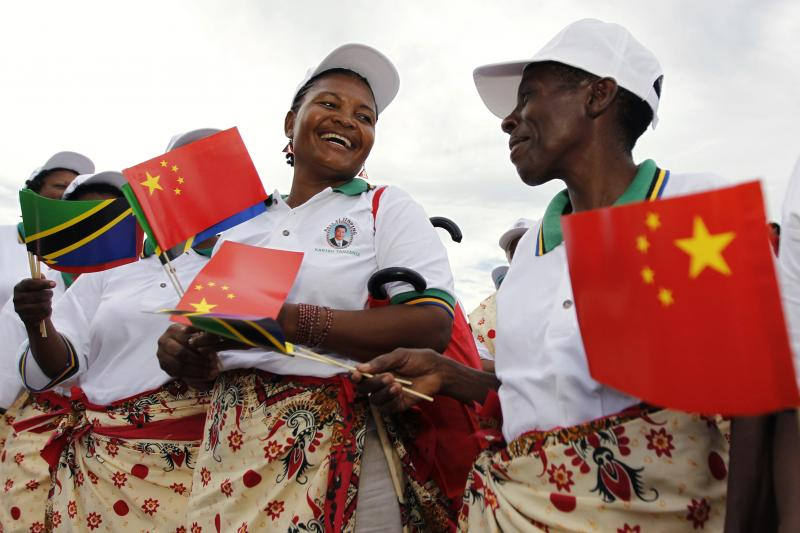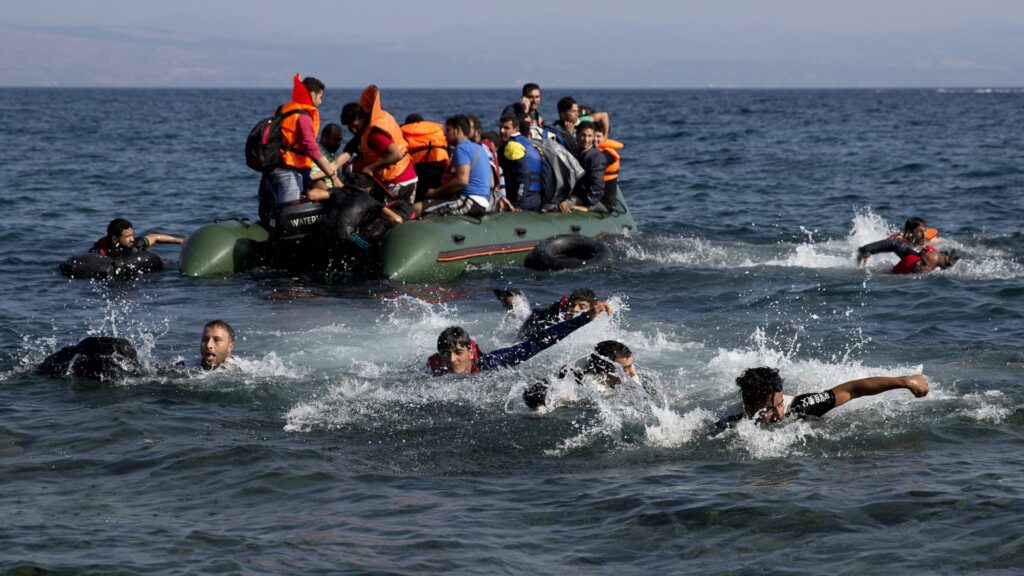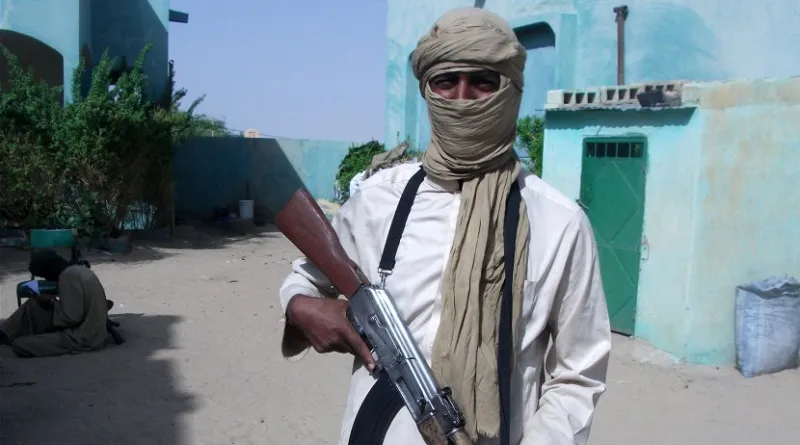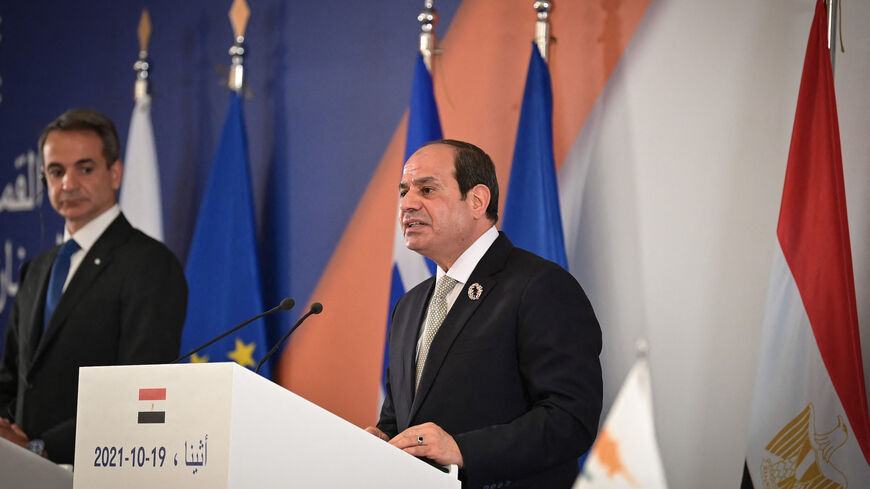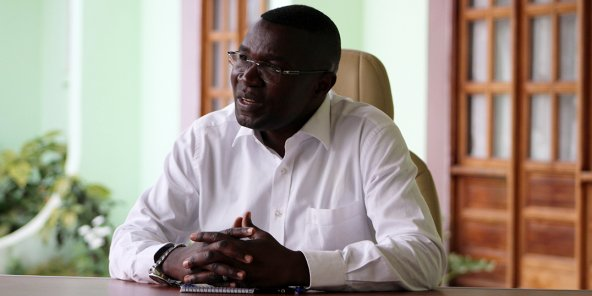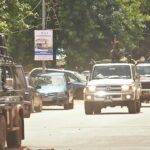
La montée récente des coups d’État en Afrique reflète une diminution de la volonté régionale et internationale à appliquer les normes anti-coup. Pour inverser cette tendance, il faudra promouvoir la démocratie et systématiquement imposer de vrais coûts aux putschistes.
Les 82 coups d’État que l’Afrique a connus entre 1960 et 2000 ont été dévastateurs pour le continent – contribuant à l’instabilité, à la corruption, aux violations des droits humains, à l’impunité et à la pauvreté qui ont caractérisé de nombreux pays africains durant cette période. Les coups d’État, en outre, sont contagieux. Un coup d’État réussi augmente considérablement la probabilité de coups d’État ultérieurs, dans ce pays comme dans ses voisins.
La récente vague de coups d’État en Afrique est donc une mauvaise nouvelle. Au cours des deux dernières années, des coups d’État ont eu lieu au Mali (deux fois), au Tchad, en Guinée, au Soudan, en Tunisie et, sans doute, en Algérie et au Burundi, alors que la plupart de ces pays étaient en pleine transition démocratique. Ce type de coup d’État peut être attribué aux coups d’État perpétrés en Égypte et au Zimbabwe quelques années auparavant. Cela signifie que près de 20 % des pays africains ont été frappés par des coups d’État depuis 2013. Le continent risque donc de retourner à la mauvaise époque de la mauvaise gouvernance militaire – une période dont on se souvient souvent pour ses « décennies perdues ».
Les acteurs internationaux ne parviennent pas à faire respecter les normes relatives aux coups d’État
Les coups d’État sont en fin de compte des calculs froids des avantages par rapport aux coûts. Les avantages sont fabuleux – pouvoir et accès illimité aux ressources de l’État. L’attrait d’un coup d’État, par conséquent, existera toujours. Les inconvénients potentiels – échec ou emprisonnement – sont probablement considérés comme gérables pour des acteurs militaires sans contraintes sous une administration civile. En bref, ceux qui montent des coups d’État le font parce qu’ils pensent pouvoir s’en tirer à peu de frais.
Dans le cadre de la politique de non-ingérence de l’Organisation de l’Union africaine, les putschistes n’avaient pas à se soucier des coûts externes. La pléthore de coups d’État pendant cette période démontre l’invitation ouverte aux prises de pouvoir militaires créée par cette posture. Le passage de l’Union africaine à une politique de non-indifférence lors de sa création en 2000 a fondamentalement modifié ce calcul, soumettant une junte à une suspension potentielle, à des sanctions et à la menace d’une intervention. Ces coûts ont été amplifiés par les sanctions des démocraties occidentales et des organisations internationales.
« En traitant les coups d’État comme des moyens malheureux mais normaux de transférer le pouvoir en Afrique, les acteurs internationaux donnent par inadvertance aux putschistes un coup de pouce pour franchir la ligne d’arrivée et consolider leur putsch» .
L’augmentation récente du nombre de coups d’État en Afrique (une tendance que l’on n’observe pas dans d’autres régions) reflète une diminution de la volonté des acteurs régionaux et internationaux de faire respecter les normes anti-coup d’État en Afrique. Cette situation est le résultat d’une confluence de facteurs, notamment une récession démocratique régionale, une inclinaison des organismes régionaux à négocier des compromis avec les putschistes, une réticence à organiser des interventions militaires et la distraction des acteurs internationaux par les crises internes et la pandémie, entre autres.
Ce schéma souligne le rôle essentiel que jouent les acteurs régionaux et internationaux dans l’atténuation des coups d’État. Qu’est-ce qu’un coup d’État, après tout, sinon des acteurs militaires qui prétendent être les représentants souverains de cet État ? Pour être durables, les coups d’État doivent être reconnus. Si les acteurs internationaux refusent de le faire, les putschistes sont politiquement isolés – ce qui est encore plus grave lorsqu’ils se voient refuser l’accès aux comptes financiers souverains d’un État.
En bref, les acteurs internationaux jouent un rôle essentiel dans la validation des coups d’État. En traitant les coups d’État comme des moyens malheureux mais normaux de transférer le pouvoir en Afrique, les acteurs internationaux donnent par inadvertance aux putschistes un coup de pouce pour franchir la ligne d’arrivée et consolider leur putsch.
Seigneurs du coup
Les Émirats arabes unis, l’Arabie saoudite et l’Égypte ont considéré les coups d’État africains comme un moyen de renforcer leurs ambitions régionales. Ils ont activement parrainé la tentative de l’armée soudanaise de se maintenir au pouvoir. Ils ont également été occupés dans les coulisses à enhardir et à fournir une couverture à l’auto-coup de Kais Saied en Tunisie. Empêcher une démocratie arabe de prendre racine atténue également tout élan réformateur que ces États du Golfe pourraient connaître pour ouvrir leurs propres structures de gouvernance très restrictives.
La Russie a également soutenu activement les coups d’État en Afrique. Travaillant souvent par l’intermédiaire du groupe de mercenaires Wagner, Moscou a entretenu des relations étroites avec l’armée tout au long de la transition démocratique du Soudan et aurait fait pression pour qu’elle prenne le pouvoir. En échange de son soutien, la junte soudanaise est susceptible d’accorder à la Russie l’accès au port naval de Port-Soudan, donnant ainsi à Moscou un pied-à-terre militaire dans l’important corridor de la mer Rouge. Les intérêts de Wagner continueront également à opérer dans l’ouest du Soudan pour soutenir le trafic d’or et d’autres produits illicites via la République centrafricaine.
Au Mali, des campagnes de désinformation pro-russes avaient dénigré l’autorité du président démocratiquement élu Ibrahim Boubacar Keita au cours de l’année précédant le coup d’État d’août 2020. Ce désordre a contribué aux protestations de l’opposition contre Keita qui ont servi de justification au coup d’État. Plusieurs membres de la junte avaient auparavant étudié en Russie.
Pour compenser leur manque de légitimité nationale, les putschistes ont besoin d’une validation internationale. Cela donne aux acteurs autoritaires extérieurs plus de poids pour compromettre la souveraineté d’un État. Le coup d’État au Mali, par exemple, a conduit la junte à envisager d’inviter des mercenaires russes, une action qui remodèlerait radicalement la sécurité et la politique étrangère maliennes. L’effet d’une telle décision, prise par des officiers militaires non élus opérant en dehors d’un cadre constitutionnel et sans responsabilité publique, ne serait pas dans l’intérêt des citoyens maliens, mais il renforcerait l’influence russe.
Comment les acteurs démocratiques internationaux peuvent-ils atténuer les coups d’État ?
L’action la plus significative que la communauté démocratique internationale puisse prendre pour inverser la tendance des coups d’État en Afrique est d’encourager la démocratie. Les gouvernements africains qui s’engagent à respecter et à faire respecter les pratiques démocratiques devraient mériter un soutien diplomatique, une aide au développement et à la sécurité et une promotion des investissements privés beaucoup plus importants. Si la vague de démocratisation de l’Afrique des années 1990 et 2000 a été menée par des réformateurs nationaux, il existait des incitations internationales claires à l’adaptation des normes démocratiques. Les acteurs démocratiques internationaux doivent s’engager à nouveau à respecter ces normes en adoptant une position plus unifiée pour soutenir l’opposition aux coups d’État.
« L’action la plus significative que la communauté démocratique internationale puisse prendre pour inverser la tendance des coups d’État en Afrique est d’encourager la démocratie ».
Cet effort diplomatique doit engager activement l’Union africaine et les communautés économiques régionales, qui ont chacune leur propre charte de la démocratie, à affirmer ces normes. Une grande partie de la réaction publique et de la coordination des réponses internationales à un coup d’État se fait par le biais de ces organismes régionaux. Si les institutions régionales africaines condamnent clairement un coup d’État, il est beaucoup plus facile pour la communauté démocratique internationale de se rallier à cette position.
Les acteurs démocratiques internationaux peuvent rationaliser que, une fois qu’un coup d’État a eu lieu, le mieux que l’on puisse faire est de maintenir l’engagement dans l’espoir d’encourager une réforme graduelle au fil du temps. Le problème de cette approche est que les dirigeants qui sont arrivés au pouvoir en enfreignant les règles – que ce soit par des coups d’État ou en échappant à la limitation des mandats – ont tendance à ne pas se modérer mais à agir avec une impunité croissante.
Le revers de la médaille des mesures incitatives en faveur des démocraties africaines est la nécessité d’imposer systématiquement des coûts réels aux putschistes. Ceux qui prennent le pouvoir de manière extralégale ne doivent pas être reconnus. L’aide financière et l’allègement de la dette doivent être suspendus. Les dirigeants du coup d’État devraient voir leurs avoirs gelés et se voir refuser l’accès au système financier international. Les gouvernements ayant fait l’objet d’un coup d’État devraient se voir refuser l’accès aux comptes souverains. La posture devrait être d’abord de revenir sur le coup d’État, puis de négocier, et non l’inverse.
En veillant à ce que les putschistes soient sévèrement sanctionnés, les acteurs démocratiques internationaux peuvent également contribuer à équilibrer la balance au niveau national. Les protestations et la désobéissance civile généralisée des citoyens qui rejettent la prise de pouvoir inconstitutionnelle peuvent accroître la pression sur les putschistes. Les acteurs démocratiques internationaux doivent donc veiller à ne pas affaiblir par inadvertance cette résistance intérieure en reconnaissant un coup d’État, ce qui conférerait une légitimité là où elle serait absente.
Les puissances extérieures qui soutiennent financièrement ou politiquement les putschistes doivent également assumer des coûts. En plus de bloquer les aspirations démocratiques de millions d’Africains, ces acteurs sapent efficacement un système international fondé sur des règles tout en en tirant les bénéfices. Ces coûts devraient être liés à la réputation et aux finances. Le fait de nommer et de faire honte peut renforcer l’antipathie envers ces fauteurs de troubles extérieurs et limiter leur influence régionale. Cela devrait s’accompagner d’une réduction de la coopération en matière de sécurité, d’un accès restreint aux marchés et aux réseaux financiers occidentaux et de sanctions au titre des lois Magnitsky et Global Fragility Act européennes ou mondiales.
Il ne s’agit pas seulement d’une position morale, mais d’une position qui contribue à rendre l’Afrique plus stable et plus prospère, ce qui permet de trouver des partenaires économiques et de sécurité plus fiables. Les autocraties africaines sont responsables de plus de 75 % des conflits, des migrations forcées et des crises alimentaires du continent. Si l’Occident veut contribuer à endiguer le flux de ces forces déstabilisatrices, il doit se faire le champion de la démocratie en Afrique.
Ce n’est pas pour rien que la communauté internationale a largement œuvré à l’élimination des coups d’État dans la période de l’après-guerre froide. Le même raisonnement persiste aujourd’hui. La question est de savoir si les acteurs internationaux se souviennent du scénario.
